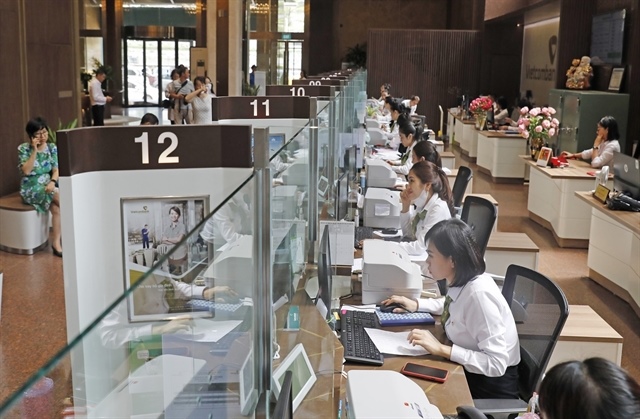Vietnam gov’t says selling shares in firms to build new hospitals
Vietnam gov’t says selling shares in firms to build new hospitals
The money to be earned from the government's divestment in ten enterprises will be prioritized for investment in the healthcare sector, a Ministry of Finance official said Wednesday.

The Vietnamese government is slated to divest all of its shares in ten businesses, including big names Vinamilk, FPT Telecom, and Bao Minh Insurance, according to a directive signed by Deputy Prime Minister Vu Van Ninh.
These government holdings are collectively worth US$3 billion, a considerable sum that is hoped to “give healthcare investment a boost,” Nguyen Minh Tan, deputy head of the agency in charge of the state budget under the finance ministry, said.
Building quality new hospitals has emerged as an urgent need in Vietnam, after Prime Minister Nguyen Tan Dung complained in a regular government meeting in June that many Vietnamese patients prefer to receive treatment in Singapore than at home.
“If we invest in six new hospitals, which will cost up to VND5-6 trillion [$223.21-267.86 million] each to build, we will need around VND30-36 trillion [$1.34-1.61 billion,” Tan said, adding that money gained from the government’s sale of holdings will partially fund the investment.
The official also turned down allegations that the government had to sell out its shares to make up for the troubled state budget, saying it is “not really so.”
“Divesting from several firms is a plan carefully discussed and decided on by the government,” he said.
“The prime minister has also insisted that the divestment and the planned privatization of these previously state-run enterprises be seriously considered and implemented.”
The government owns the shares via the State Capital Investment Corporation (SCIC), and currently possesses 45.1 percent of Vinamilk, or a stake worth as much as $2.5 billion.
State holdings in the other nine enterprises are estimated to be worth $500 million.
The announcement of the government’s divestment is viewed as good news for the stock market and the scheduled privatization of state-run firms in the future, according to local analysts.
“The divestment also signals that the government is ready to open its market when Vietnam ratifies the Trans-Pacific Partnership agreement,” Huynh Anh Tuan, general director of securities firm SJC, said.
While the detailed contents of the TPP remain undisclosed, it is likely that Vietnam will have to allow more foreign investors to participate in its dairy and insurance sectors, Tuan said.
“The selling of state holdings also sends a message to foreign investors that the foreign ownership caps at Vietnamese firms will be raised, which they have long been waiting for,” he added.




























